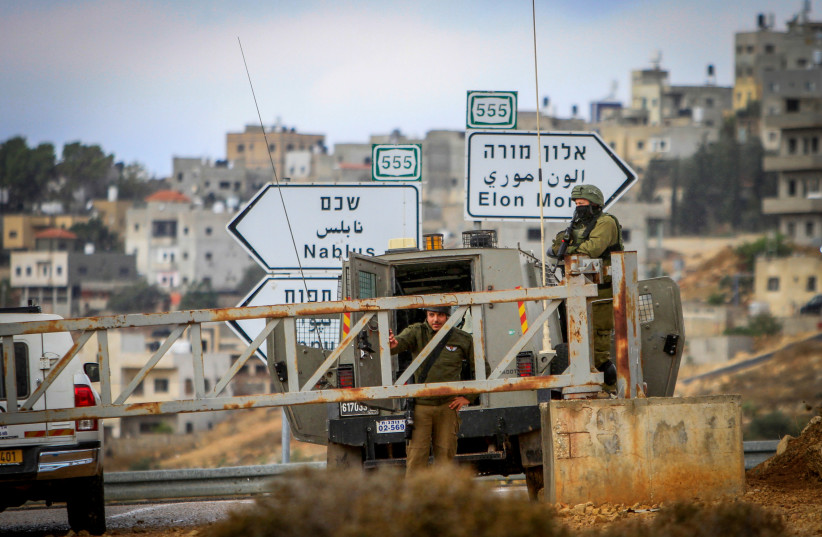Israel and the United States are at odds over its pledges to suspend settlement building announcements in Aqaba last February as the IDF prepares to advance plans for over 4,000 new settler homes.
“We have been clear that advancing settlements is an obstacle to peace and the achievement of a two-state solution,” US State Department Spokesman Mathew Miller told reporters in Washington on Tuesday.
“It is critical for all parties to uphold the commitments made at regional meetings at Aqaba and Sharm el-Sheikh to avoid measures that .undermine the prospects of a two-state solution,” he said.
“We will make concerns we have known publicly and we will continue to make them known privately. What the US says matters what we say from these podiums matters, It’s important that we signal clearly what we believe,” Miller said.

4,000 new Israeli West Bank settler homes
Israel has pushed back at the United States, with the IDF’s Civil Administration expected to convene the Higher Planning Committee for Judea and Samaria for the second time this year to promote plans for what could be over 4,000 new settler homes.
Prime Minister Benjamin Netanyahu’s government — in power since late December — has restored the practice of holding such meetings four times a year. The aim is to reduce international outrage at announcements of settlement building which are deemed by the global community as an obstacle to peace.
The committee last met in February when it advanced plans for some 7,000 new settler homes. Israel also authorized 10 West Bank outposts transforming them into nine settlements.
But at a special summit in Jordan’s Aqaba in February Israel promised to suspend for four months any new announcements about settlement construction and for six months any new authorizations of outposts or the creation of new settlements.
The unique summit included officials from Israel, Jordan, Egypt, the United States, and the Palestinian Authority and was held once again a month later in Egypt's Sharm el-Sheikh.
US Secretary of State Antony Blinken reminded Netanyahu about the importance of adhering to the agreements forged there and to avoid measures that would undermine the two-state solution.
Israel has operated under the understanding that the suspension was good for only four months and has now expired.
In a nod to the US, it agreed to cancel a hearing on the contentious E1 project in which 3,142 new settler homes are slated to be constructed in an unbuilt area of the Ma’aleh Adumim settlement just outside of Jerusalem.
It has, however, insisted on pressing forward with the advancement of other settlement projects.
According to KAN News, the committee will debate plans for 4,570 homes, of which 1,332 of those units are awaiting final approval. The Higher Planning Committee has yet to publish its agenda for the meeting or to set a date.
In an interview with Sky News over the weekend, Netanyahu dismissed US claims that settlement building was an obstacle to peace stating that Israel had a right to build in its ancestral homeland.
The dispute with the US comes, as both Washington and Jerusalem have their eyes set on a normalization deal with Saudi Arabia.
During a joint press conference with Blinken, Saudi Foreign Minister Prince Faisal bin Farhan said that the benefits of such a deal were limited without Israeli-Palestinian peace.
On Tuesday, Arab League Secretary-General Ahmed Aboul Gheit called on Washington to take a firm stand against Israel’s plan to advance settlement construction, according to the Palestinian news agency WAFA.
